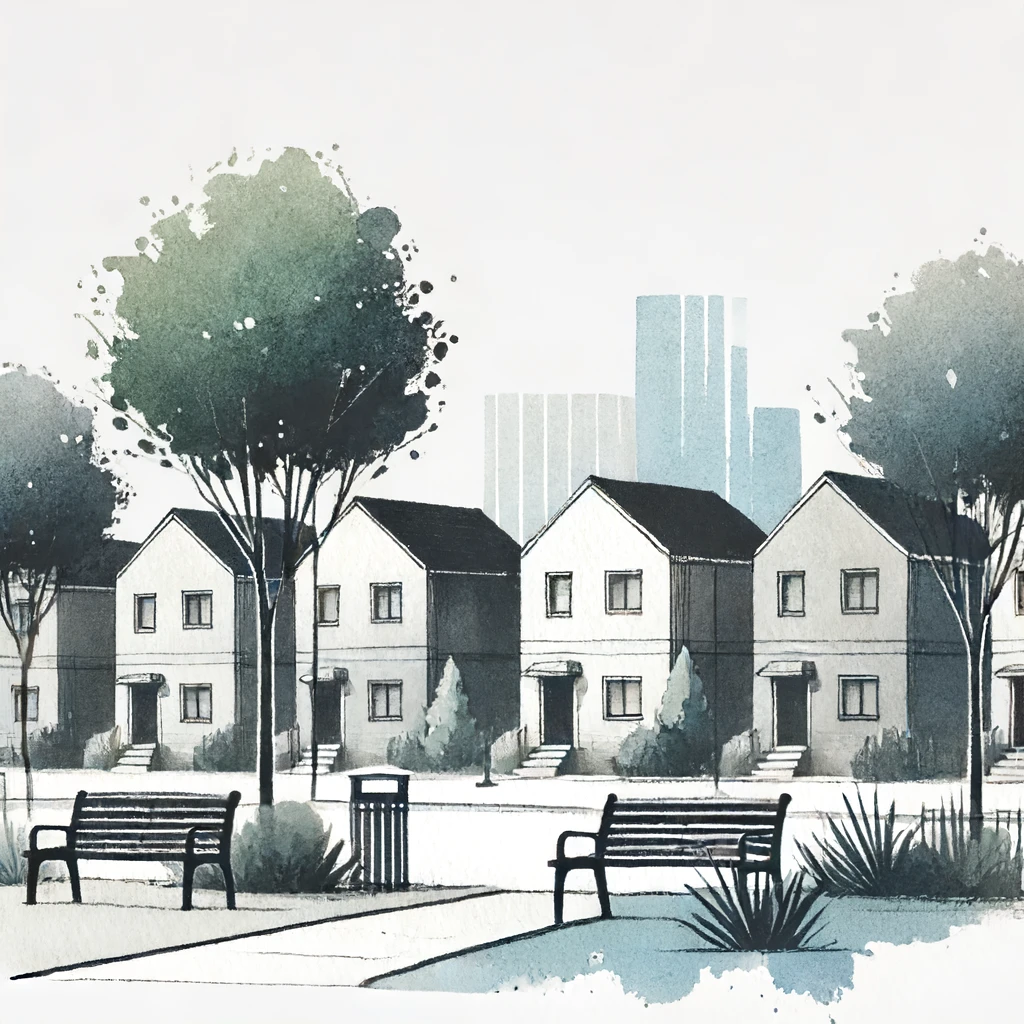
Creating Obtainable Housing in Communities
Trust Financing Solutions supports housing development initiatives that create obtainable housing in the communities we serve.
- Improved Quality of Life
- Economic Stability for Residents
- Community Cohesion and Security

BENEFITS OF AFFORDABLE HOUSING
Creating obtainable (or affordable) housing in communities brings a host of benefits, significantly impacting both the residents and the broader community. Here’s a list of these advantages:
Improved Quality of Life: Affordable housing alleviates the financial burden on low-income families, allowing them to allocate more resources to other essential needs like healthcare, education, and nutrition, thereby improving their overall quality of life.
Economic Stability for Residents: Lower housing costs mean residents have more disposable income, which can be used for savings, investments, or spending within the local economy, driving economic activity.
Community Cohesion and Security: Stable housing situations can lead to a stronger sense of community and belonging, as residents are more likely to invest time and resources into their neighborhood, fostering community cohesion and security.
Better Educational Outcomes: Stable and affordable housing reduces disruptions in schooling caused by frequent moves. This stability can lead to better educational outcomes for children and youth.

Obtainable housing that is well-built and maintained can lead to healthier living environments, reducing problems associated with poor-quality housing, such as respiratory issues and stress-related illnesses.
Increased Workforce Stability: Affordable housing near employment centers can reduce commute times and transportation costs for workers, leading to increased job stability and productivity.
Encouragement of Local Investment: The development of affordable housing can stimulate local investment and can be a catalyst for neighborhood revitalization, especially in underdeveloped or neglected areas.
Environmental Sustainability: Well-planned affordable housing can promote environmental sustainability through energy-efficient construction and by enabling residents to live closer to public transport and employment hubs.

Attracting Talent: Communities with obtainable housing options are more attractive to a needed workforce, including essential workers such as teachers, healthcare professionals, and first responders, who might otherwise be priced out of the housing market.
Long-Term Economic Growth: By providing stable housing options, communities lay the foundation for long-term economic growth, as residents invest in their neighborhoods and contribute to the local economy over time.
Reduced Poverty and Homelessness: By providing affordable living options, obtainable housing helps reduce the levels of poverty and homelessness, which are critical issues in many urban areas.

Obtainable housing not only addresses the basic need for shelter but also serves as a catalyst for community development, economic stability, and overall improvement in the quality of life for residents.
